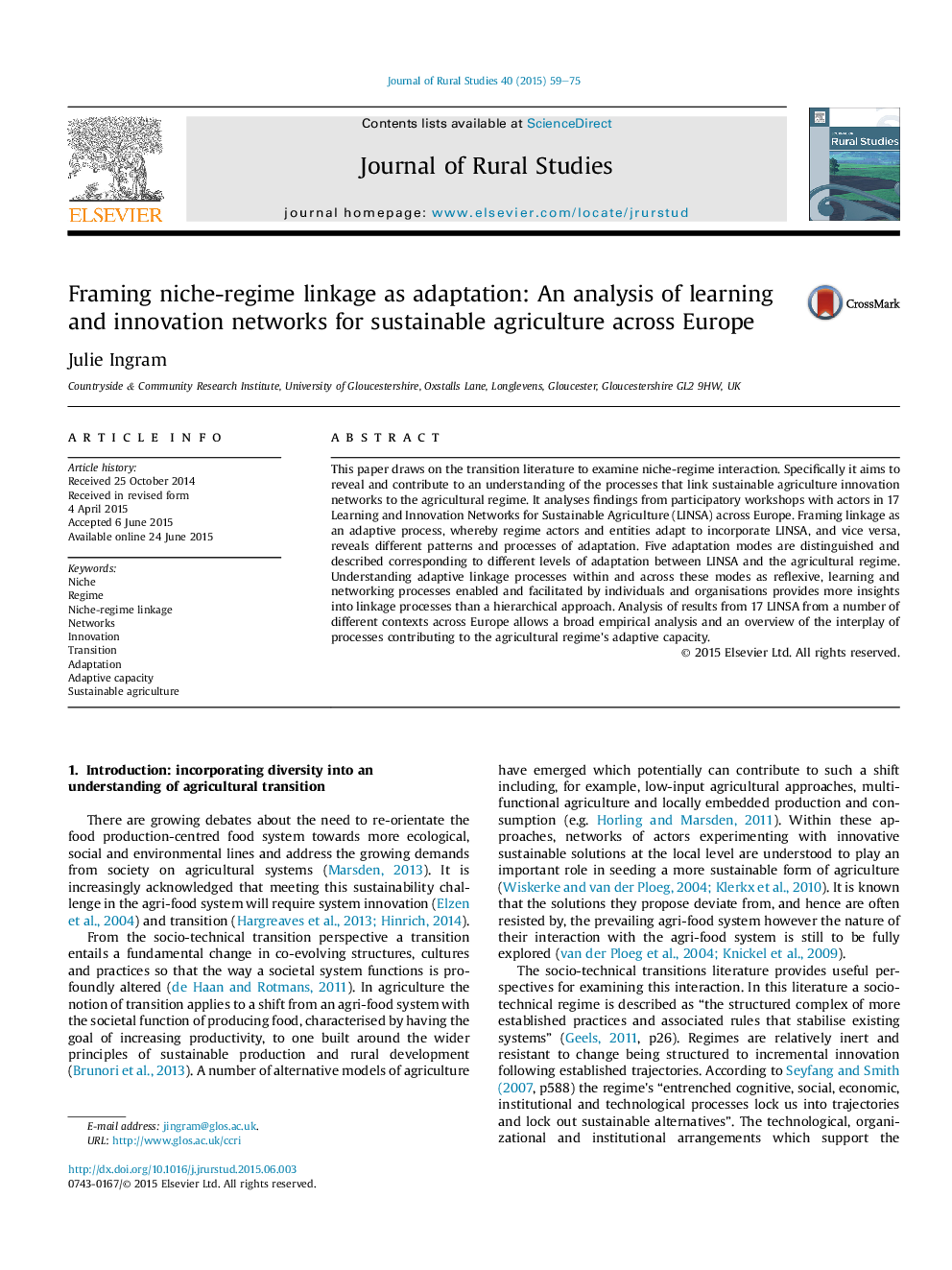| Article ID | Journal | Published Year | Pages | File Type |
|---|---|---|---|---|
| 92449 | Journal of Rural Studies | 2015 | 17 Pages |
•Empirical evidence from 17 Learning and Innovation Networks for Sustainable Agriculture (LINSA) from across Europe.•Synthesis of concepts of niche-regime interaction and linkage processes are used to frame linkage as an adaptation process.•Adaptation modes are distinguished corresponding to different levels of interplay between LINSA and the agricultural regime.•New insights are gained on the agricultural regime's adaptive capacity.
This paper draws on the transition literature to examine niche-regime interaction. Specifically it aims to reveal and contribute to an understanding of the processes that link sustainable agriculture innovation networks to the agricultural regime. It analyses findings from participatory workshops with actors in 17 Learning and Innovation Networks for Sustainable Agriculture (LINSA) across Europe. Framing linkage as an adaptive process, whereby regime actors and entities adapt to incorporate LINSA, and vice versa, reveals different patterns and processes of adaptation. Five adaptation modes are distinguished and described corresponding to different levels of adaptation between LINSA and the agricultural regime. Understanding adaptive linkage processes within and across these modes as reflexive, learning and networking processes enabled and facilitated by individuals and organisations provides more insights into linkage processes than a hierarchical approach. Analysis of results from 17 LINSA from a number of different contexts across Europe allows a broad empirical analysis and an overview of the interplay of processes contributing to the agricultural regime's adaptive capacity.
